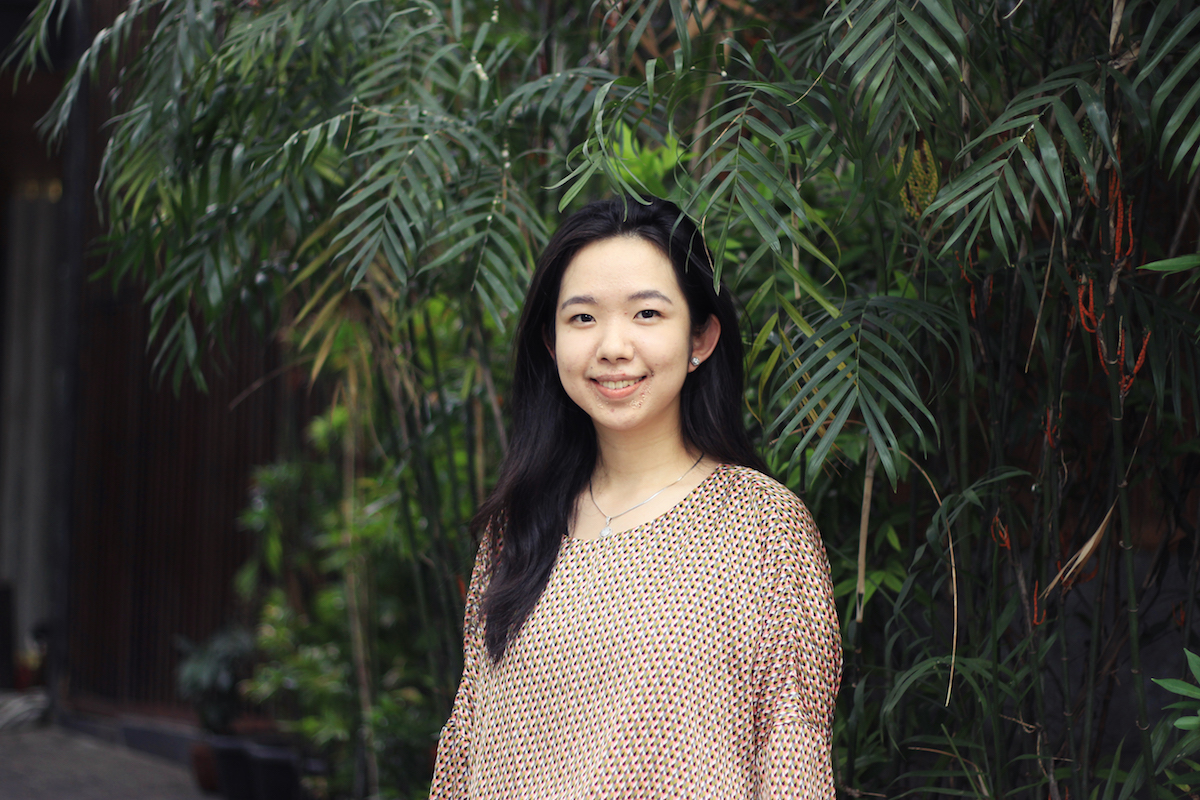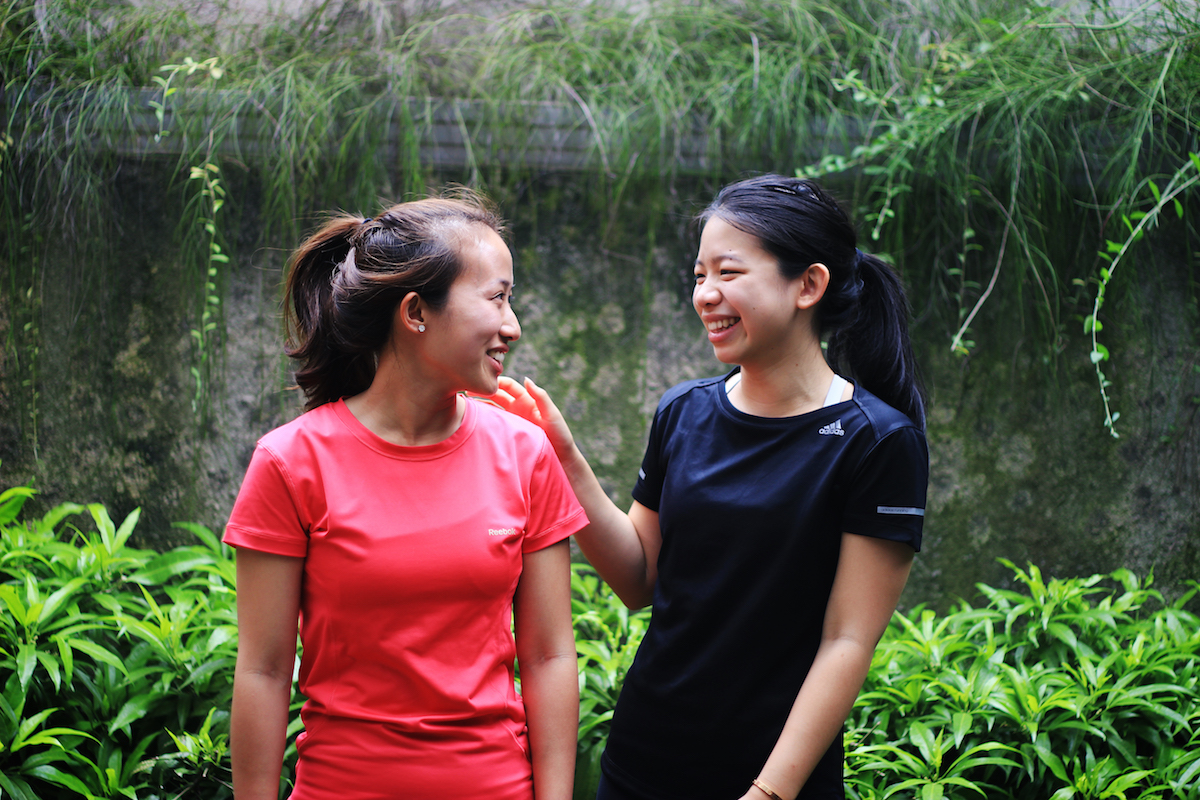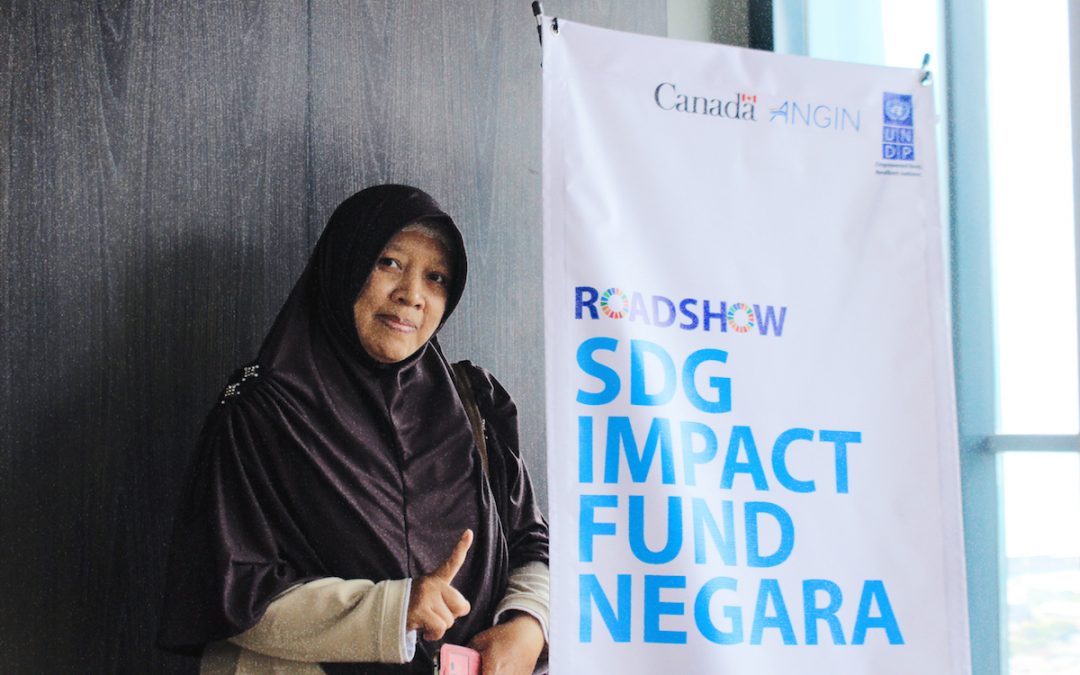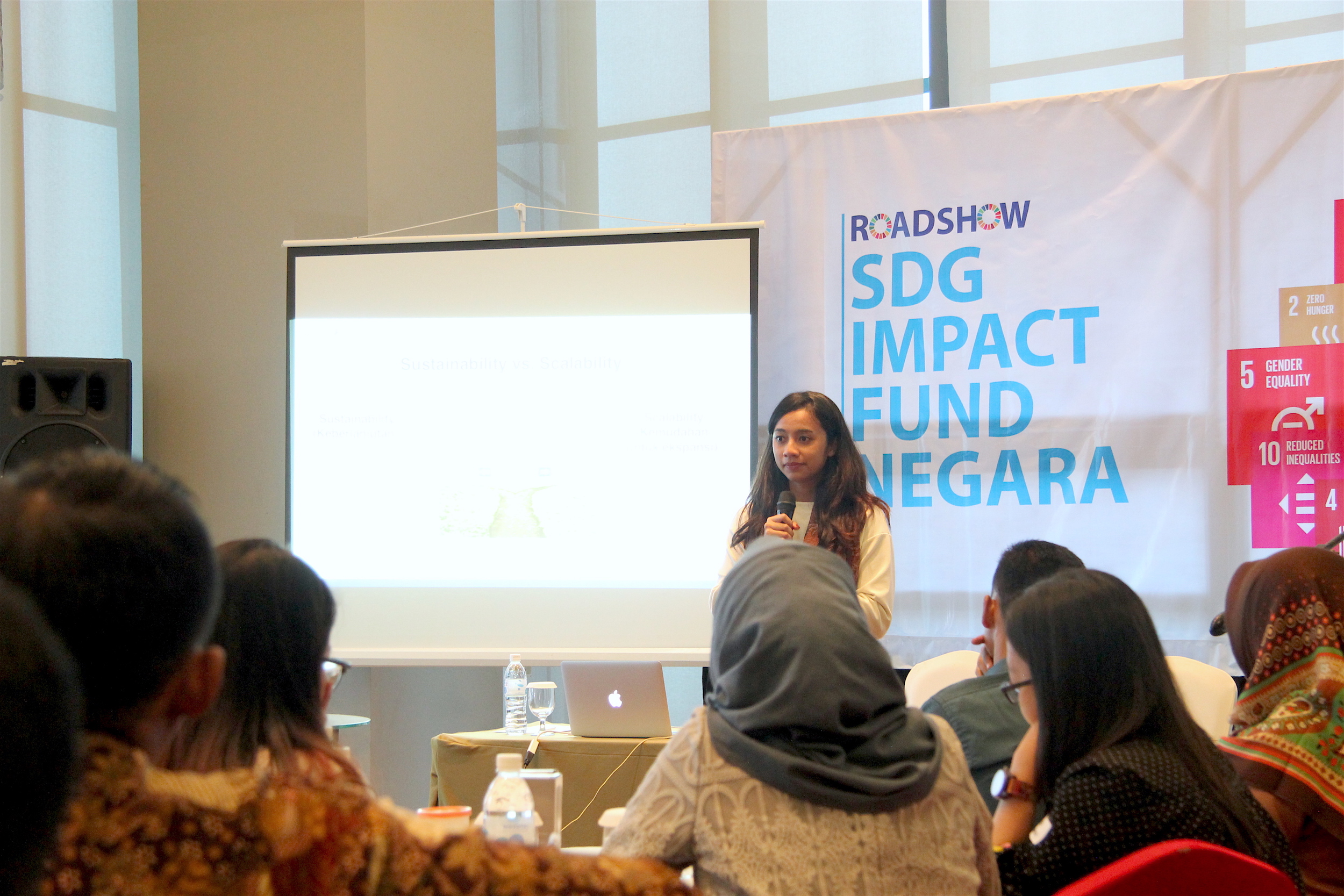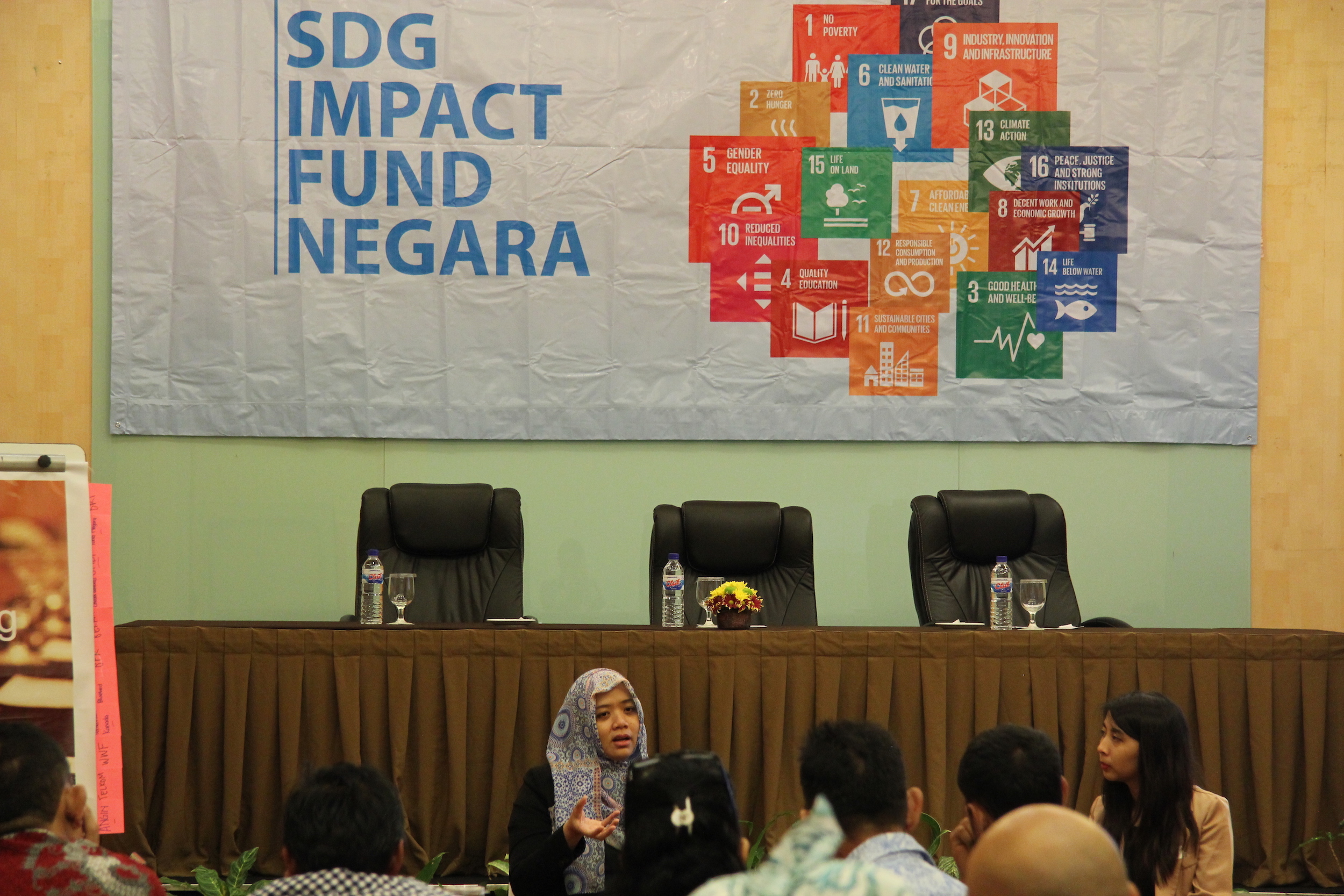Tell us a bit about yourself.
My name is Laurentia Melinda and I am in charge of business development at my company, NamWest. I am also a recent ANGIN angel.
So I started out majoring in communications; at first I didn’t really look into the agriculture industry. I was thinking more on the lines of banking and consulting. But once I came back to Indonesia, I noticed how many issues there really are, especially in the fields and with farmers. They’re the ones who are supposed to have a better quality of living than those of us living in the city because they are the ones who produce everything. Things we cannot live without, things that our are staples, like rice. It’s all their work, you know. Even right now, if you asked me to plant something like rice, I can’t do that. It takes real skill.
These farmers should be helped by us in the city, but they have no connections to urbanites. Their lack of a network means that they are inherently out of the picture – out of sight and out of mind – even when they play such an important role. We should really appreciate them more – their hard work, their skill, and the role they play in our society.
Why did you join ANGIN?
I joined ANGIN because I am a representative of my company and I wanted to get more in touch with the agri-startups in Indonesia. For example, there is a boom in agritech and I want to create partnerships and possibly invest in those kinds of startups. We are currently partnering with a few startups right now and we want to do more mentorship for them, since they may be relatively new on the agriculture business side. Maybe my company can contribute to their development.
I’m excited by how ANGIN is so connected with a wide variety of startups, especially on the agriculture side. ANGIN has a lot of portfolios and connections that could help startups be exposed to other companies. Maybe we can also get exposed to other fields other than agriculture for diversification.
Agriculture is oftentimes seen as a more traditional industry. What about it makes you, a young urbanite, become so excited about agriculture in Indonesia?
I think the new generation in Indonesia is starting to shift to a more metropolitan, urban lifestyle. All the farmers in Indonesia are starting to age or have already aged quite significantly, whereas their children and grandchildren are rarely carrying out the same jobs as they are. These farmers are seeing a shift away from what they hold so dearly to. So, I think in the long run we clearly need more farmers, even though there are bound to be technological breakthroughs in the field of agriculture like vertical farming and smart farming. At the same time, there should be a we need to continue the traditional kind of farming that we all know for the sustainability of our food and the future of our welfare.
It’s important to live the life of an outsider to gain perspective and insight into what life is really like for different kinds of people. The farmers are all outliers and outsiders to us urbanites because they don’t have the kinds of privileges that we do. They live extremely modestly, they eat very modestly. Sometimes they don’t even wear shoes, sandals or slippers. They never wear shirts that are ironed. And despite this, they are confident in who they are.
How is it being a young woman in the agriculture space, which is predominantly male?
Yeah, when I first stepped into the field it was difficult. It was a major culture shock. When we are living in the city, we are living an extremely superficial life – and a very good life, because we can get all the things that we want with such ease. Things such as air conditioning are regarded to us as a given, but it’s never been a privilege on the field or in a village. Right now, female status in the field is very rare, and the sheer number of women working on the field is also very little. But despite these numbers, we females are capable of working in agriculture.
Even now, people look at me weirdly because I am female. For instance, I was the only female attending a farmers’ meeting; even my own team is mostly male. The men basically just kept staring at me and they didn’t want to talk to me at all. Honestly at first I didn’t know what to say to them either. So instead, I conducted more interpersonal and in-depth talks. These helped a lot. I basically used that ‘nurturing’ quality we all possess as women to understand the farmers better.
How do you get past that initial bias that people might have against females doing agricultural work?
I think right now I’m more confident in the field, because my attitude towards it all is, “Oh I’m female. So what? So whatever!” I’ve feel extremely comfortable and carefree in my gender because I want to make sure everyone knows that as females we can still be on the field, getting dirty. We don’t always have to wear nice clothes with our hair done, looking all tidy. It’s a lot about being down to earth and in touch with nature, which is something most people in the city never get to be.
Has there ever been a moment on the field that really validated the fact that this is your life path, that working in agriculture is what you want to do?
There was a moment when I was in the fields. We all had to take our shoes off and replace them with special boots. It was very tiring to get the plantation done. Even picking up the harvest is challenging – it is overall an extremely tough job. I had no idea it would be so hard. To put it simply, it was all just very hot, very humid, and very dirty. But it was really touching how the farmers were living such modest lives. They were very low-key, and yet they were still eager to do their underappreciated and highly tedious work. They are literally the epitome of hard work; they wake up extremely early, go to the farm, work the fields, and repeat this every single day.
What’s more, during Lebaran the farmers don’t even take a break. I know this because while I was on break, my WhatsApp group with the farmers was still extremely active. They would mention that they were watering the plants, or that they were planting new crops while the rest of the country was on vacation. Lebaran is literally their only break all year, and yet they choose to work because they were afraid of turning their back on their crops. That’s real dedication.
Do you have any role models in the agriculture industry?
I think, Siti Mudaya and Ibu Susi are big role models for me ecause they’re females and they’re extremely dominant in their fields. They’re both part of male-dominated industries, but they remain humble about how far they’ve gone and how much they’ve achieved. Another inspiring person is Ibu Noni from Blue Bird Group, who is also one of ANGIN’s angels. Indonesia is currently developing rapidly, and sometimes it seems like the older role models are fading away with time. But women like her innovate and manage to integrate themselves into the ever-changing world. An example of this is how Blue Bird merged with GO-JEK to create a taxi platform on the transportation application. This is fascinating to me, and I am constantly learning from them.
What advice do you have for other women like yourself who would like to join the agriculture space? The ones who are ready to get their hands dirty and get into the fields?
I guess the first thing I would advise these women is to not be shocked when you notice that discrimination still exists in this industry. And in terms of things that are more physical in nature, be ready to get into the soil and make sure you visit the fields. Getting your hands dirty is very important because that’s the best way you will be able to manage and control the projects you are working on. In terms of expectations, let go of the idea that working on the field will be anything like working in the city. You definitely won’t have an office life.
You’re young, you’re talented, you’re female, and you’re a part of this new generation of people who are really taking charge — people who are becoming angel investors. What message do you have for other young women like yourself who want to take on leadership roles?
I think more females should have a social impact and make a bigger difference by giving back to society. And especially in the agricultural industry. For me, it’s all about giving back. It is intrinsically very fulfilling. So, my message to other girls is that you should dream big, and as a female don’t fall into the stereotype of having a housewife life. Make sure you start working towards your goals early.
